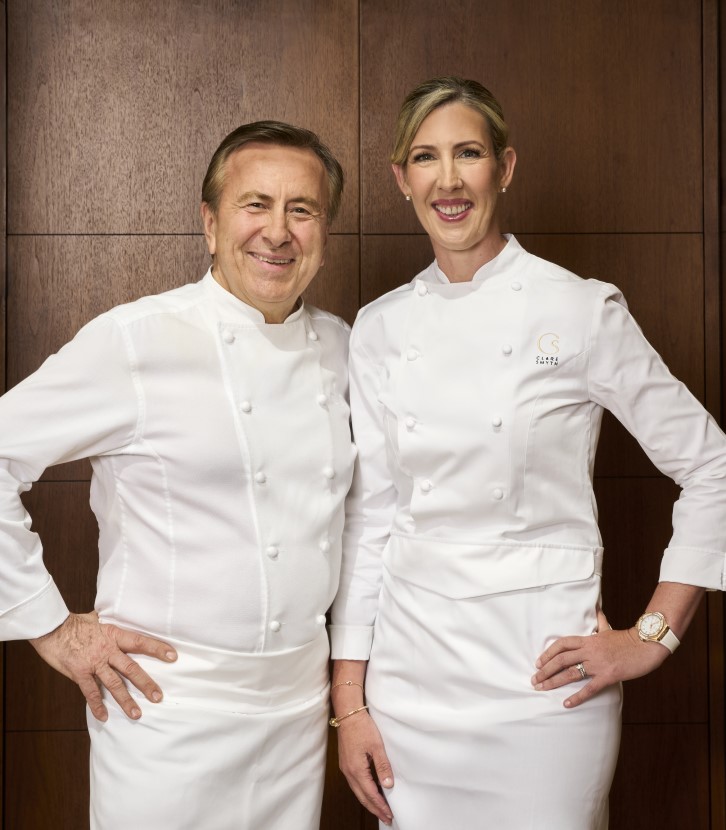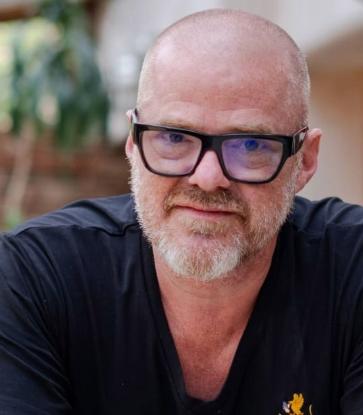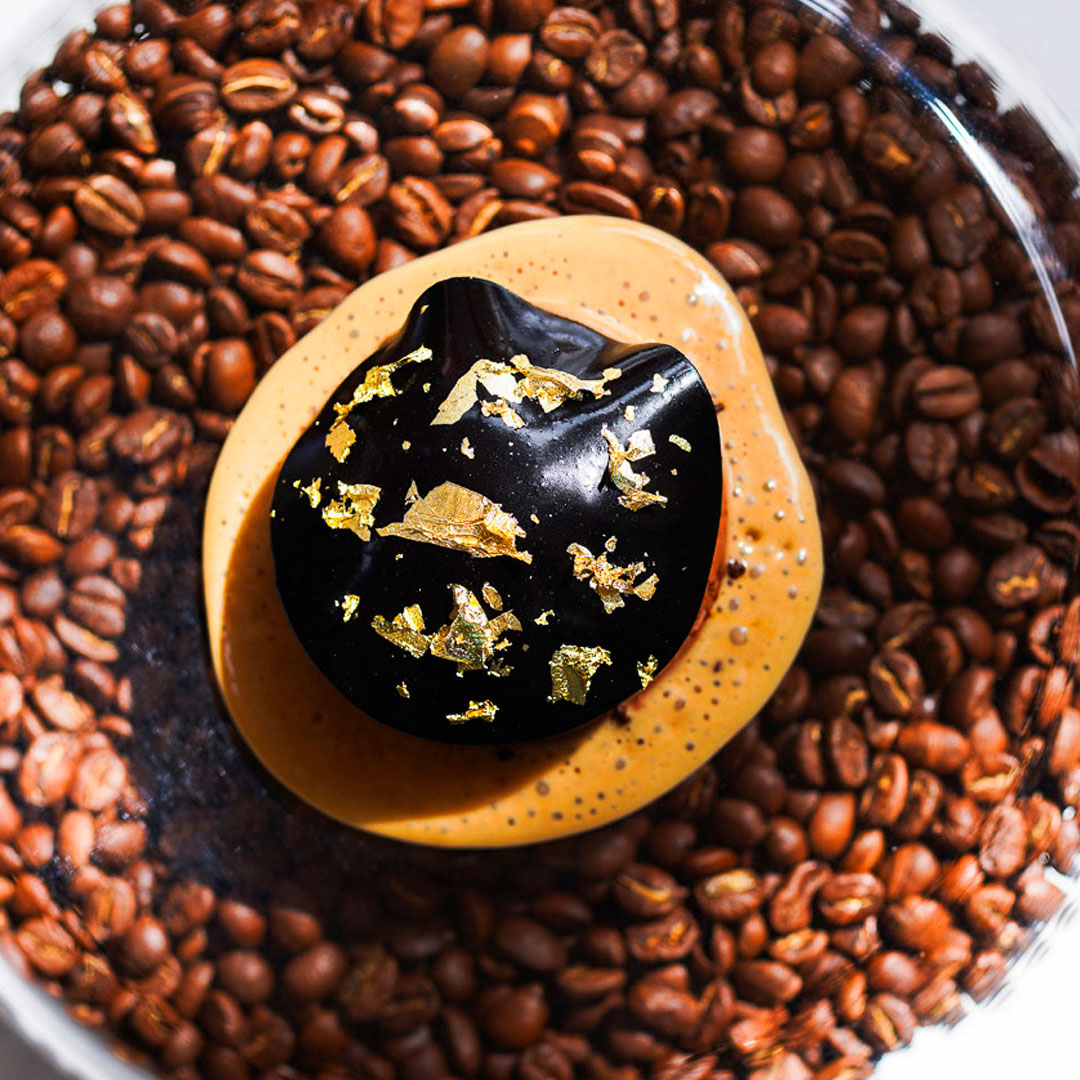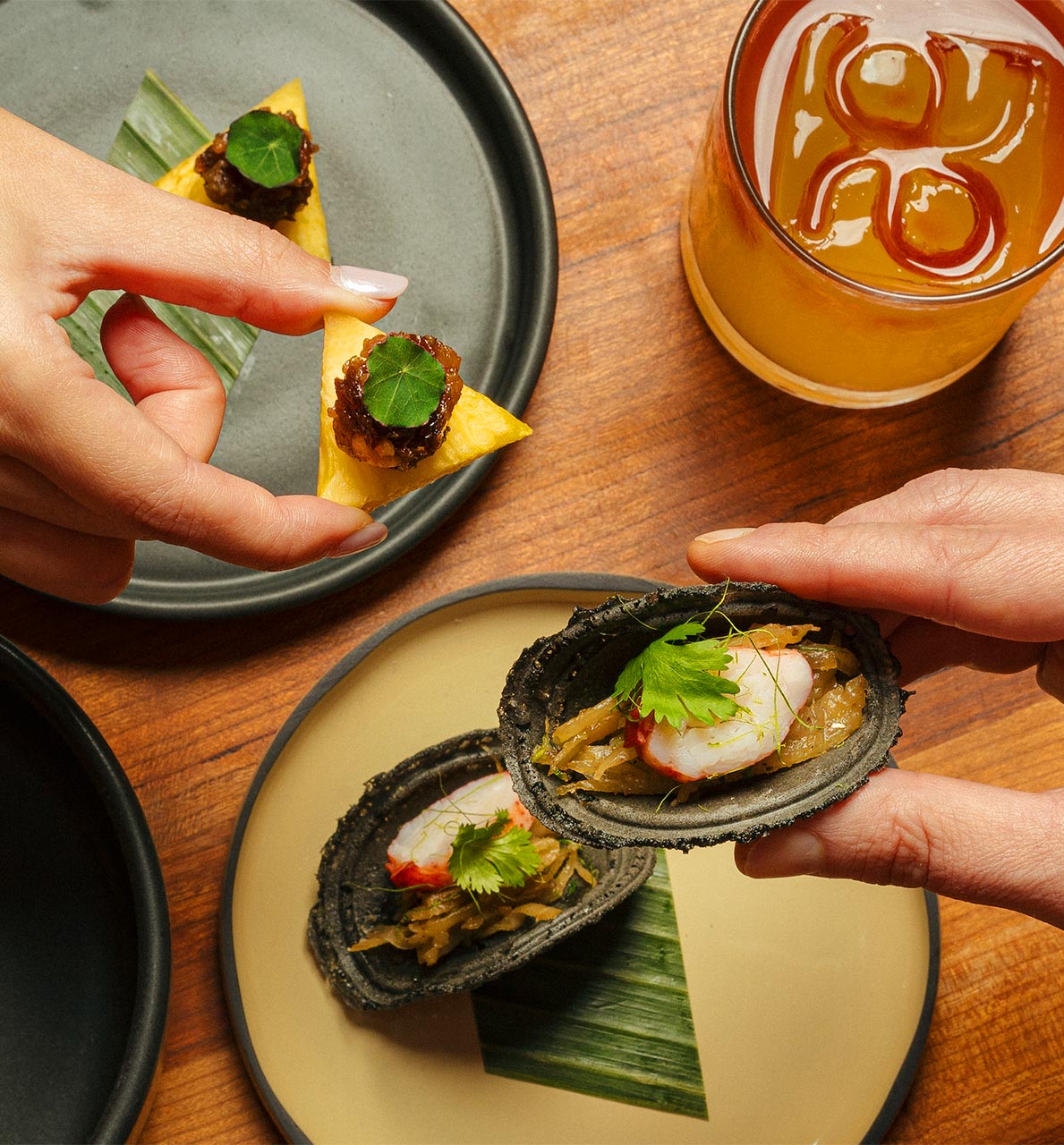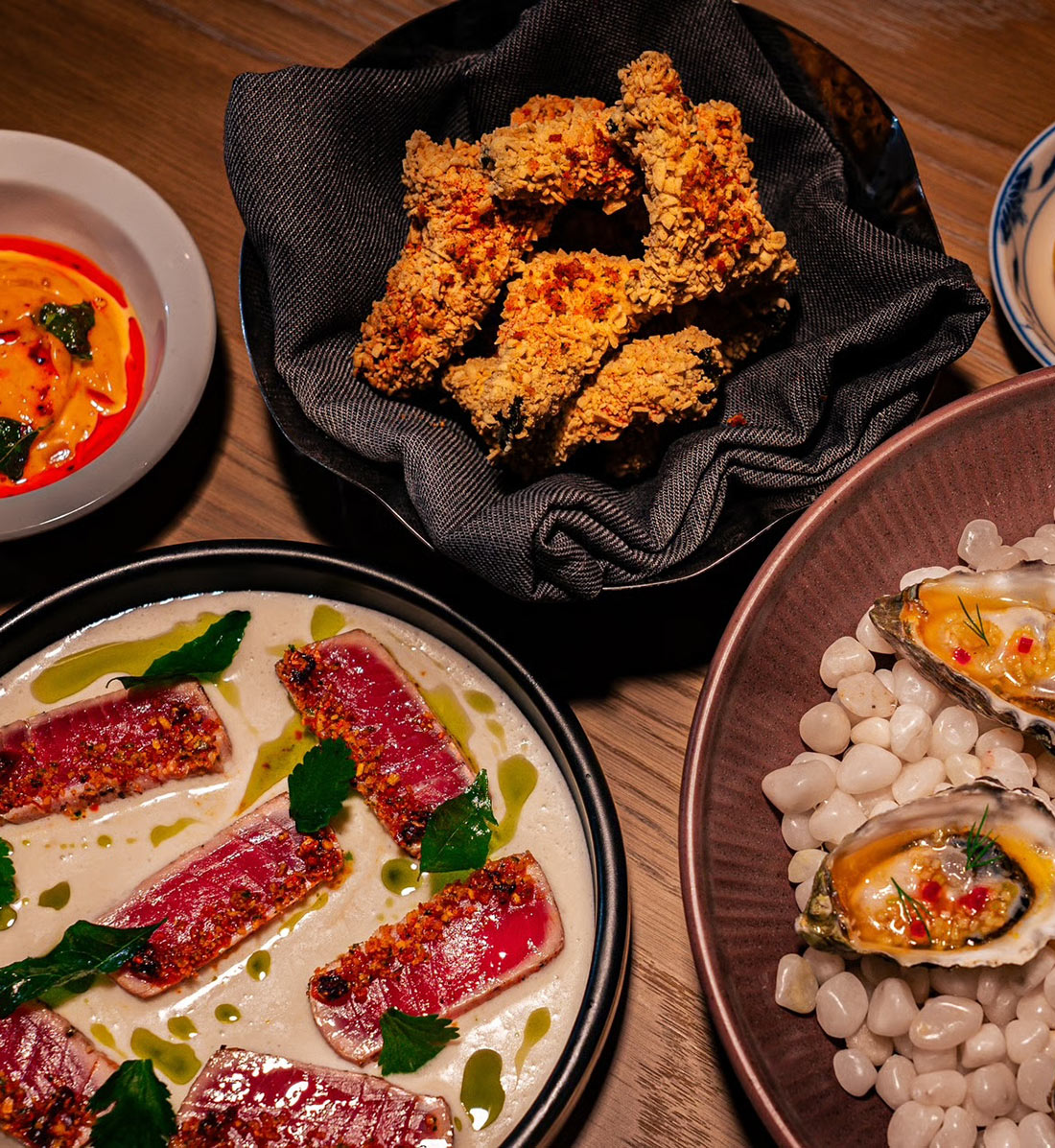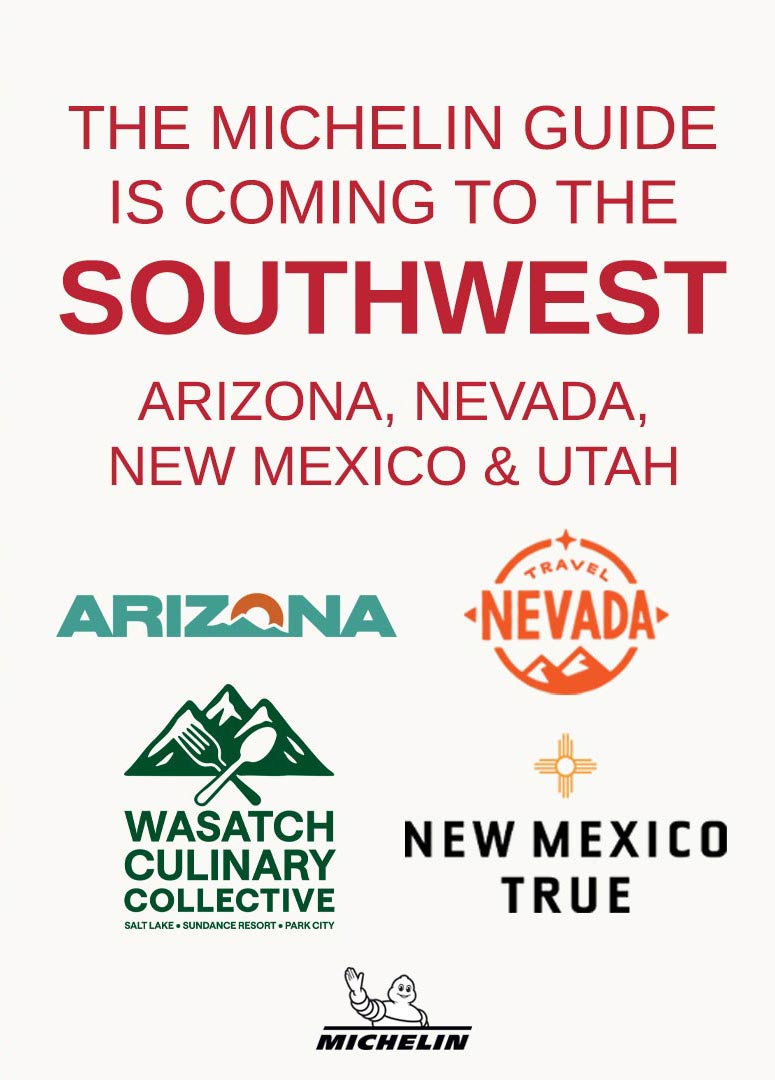Barclay Dodge is about as homegrown as it gets, making his success story that much more meaningful. As chef and owner of Bosq, Aspen’s first and only One MICHELIN Star recipient when The Guide launched in Colorado last year, Dodge has long been celebrated as the iconic ski town’s own culinary wunderkind.
His family moved to Aspen in the early 1980s when he was 13, and by 17, Dodge had begun what would become a career working in the kitchens of downtown restaurants. “I'm a local through and through,” Dodge proudly shares. In a place driven by tourism, the term “local” holds an even higher level of significance to those who live and work in Aspen year-round to make it shine, and at Bosq, it’s an all-encompassing ethos.
Known for a three-pronged approach—foraging, fermentation, and farming—Bosq’s hyperlocal focus is conveyed through a seasonal, tasting-only menu. Guests who get a coveted reservation are invited to choose their own adventure across five courses or a nine-course Chef’s Tasting Experience. “Humans have been foraging for centuries. It’s such an incredible way to express your surrounding environment through cuisine,” says Dodge, who opened Bosq in 2016. “Foraging has definitely become more of a buzzword recently, and we’re seeing it more and more on menus around the world. I’m seeing more and more foot traffic in the woods now, too. But I encourage it because there's nothing new about it.”
For Dodge, who started out by gathering mushrooms around the Elk Mountains and along the Roaring Fork River in 1997, foraging is in his blood, and few people know the area’s native plants, flowers, and fungi as well as he does. He named Bosq after the Spanish word for “woodlands”—also a nod to his time spent working for famed chef Ferran Adrià at El Bulli (a Three MICHELIN Star before it closed in 2011) in Spain.
“For me and my team, one of the big parts of foraging is just being in the woods. That's our escape, inspiration, and grounding space,” adds Dodge. “Whether we're finding anything or not, just being out there is huge for our creativity and our sanity.”
“Even if there’s three feet of snow on the ground,” Dodge hits the trails just steps from home into his Aspen Mountain backyard for an early morning hike most days of the week and says, “If I see something I like, I'll pick it. Instead of using bamboo skewers, we use scrub oak and varied twigs. We still do our lobster grilled over juniper branches [with buttermilk, lilac, and dill]. I know where the juniper bushes are exactly, and I dig down into the snow until I get to them.”

During the growing season, though, it’s a streamlined and concerted team effort, as Dodge is passionate about sharing his nearly 30 years of knowledge with his tight-knit staff. “My sous-chef [Jeff Porterfield] is really into foraging, too, so he and I are the main brains behind the process and do the majority of it,” he explains. “Although it’s great for everyone to learn how easy it is to tap into what’s just growing in nature. There's such a difference between wild-grown and cultivated. The flavor profiles are different.”
Dodge has further formalized the Bosq foraging program in recent years, and thanks to a digital logging system, which he also utilizes for fermenting trials, he has the strategy meticulously mapped out for each season. “We really understand what our pantry needs for our menus and how we can preserve ingredients. Late May is when we really start kicking into it hard to go out and get specific items to last us all year,” Dodge says. “For example, pine tips only grow for a month depending on elevation, and you’ve got to get them when they’re tender. Lilac grows everywhere around us until mid-June, and we forage dandelion flowers from one specific farm that we know is clean—we’re not going for dandelions off of a roadside. Then there’s obviously the mushroom, which is mid-summer through early fall along with roots and berries.”
He continues, “Once we pick as much as we can, then we preserve it in ways like freezing, dehydrating, pickling, lacto-fermenting, and making syrups.” Dodge is also sensitive to his secret spots and points out, “We never want to overforage any particular plant or area.” He’s also quick to caution the wave of new foragers against “just starting out by eating things out in the woods,” adding, “You can really get in trouble, so education and identification are important.”


Beyond sourcing from the forest, Dodge is equally enthusiastic about the pursuit of finding everything else with intention for the intimate 30-seat restaurant—from produce at the weekly farmer’s market during the summer to sustainably raised meat from nearby ranches to commissioning dining tables from Aspen High School’s wood shop class (still taught by the teacher when Dodge was a student).
After a well-deserved and regular few week closure this spring, when Dodge heads for the beach with his wife and business partner Molly and their two young daughters, Bosq will reopen in June. The next thing he’s on the hunt for? Two MICHELIN stars. “This has been a really fun ride and momentous achievement, but now we need to keep this momentum and focus going. Our goal is to one day receive one more Star. That’s the dream.”







